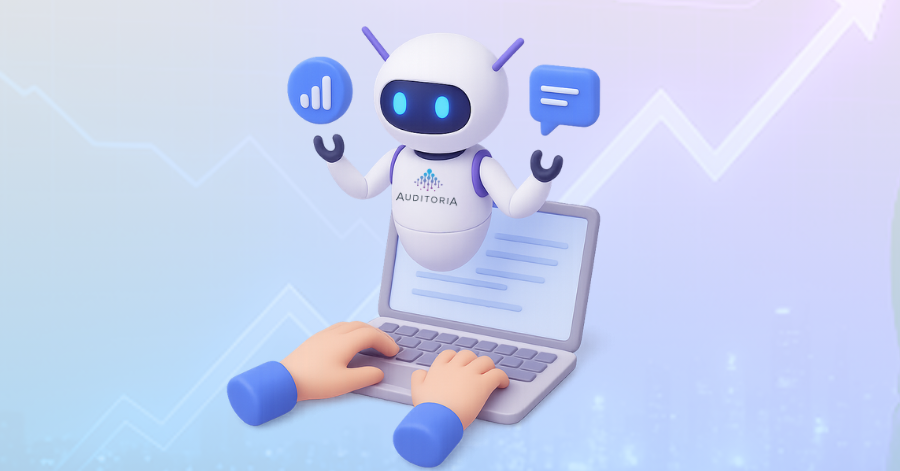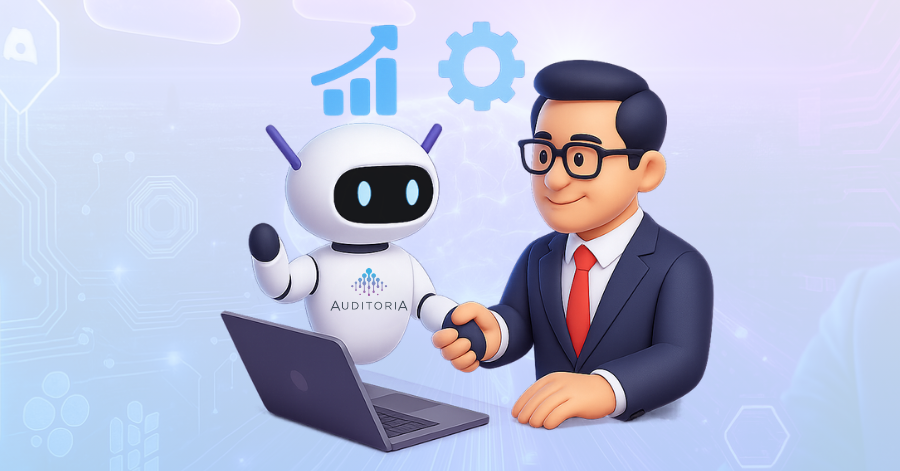Blog | AI In Finance
Agentic AI Tools for Finance: How AI Agents are Transforming the Back Office
Finance teams today face unprecedented pressure, faster closes, deeper insights, and tighter compliance. Yet this challenge has sparked a powerful transformation: the emergence of Agentic AI tools for finance, ushering in a new era of intelligent automation and decision support.
AI is now a practical enabler that helps finance shift from manual work to strategic insight. According to Deloitte's CFO Signals Report 42% of CFOs say their organizations were already experimenting with generative AI.
The future of finance isn’t just digital — it’s intelligent and autonomous.
Why AI Is Essential for the Modern CFO Office
Finance teams manage enormous volumes of data and complexity. Manual reconciliations, disconnected systems, and spreadsheet-driven workflows slow down agility and accuracy.
Key Challenges for Finance Leaders
- High transaction volumes across AP, AR, and general ledger operations
- Siloed systems and inconsistent data integration
- Pressure for faster, more accurate reporting
- Rising audit and compliance demands
How AI Agent Software for Finance Solves These Challenges
Modern AI agent software for finance combines automation, predictive analytics, and natural language processing to:
- Automate repetitive tasks like invoice matching and reconciliations
- Integrate data across ERP, banking, and procurement systems for real-time visibility
- Detect anomalies and strengthen compliance through continuous monitoring
- Empower finance teams to act as strategic business partners
According to PwC’s Finance Effectiveness Benchmarking Report, finance functions now spend over 30% of their time on business insights, decreasing the amount of time spent on transactional activities.
Top Areas Where AI Agent Tools Transform Finance Operations
AI is now reshaping nearly every corner of the finance back office, from forecasting and planning to audit and control.
1. Accounts Payable (AP) and Accounts Receivable (AR)
AI agent tools automate invoice capture, purchase-order matching, coding, approvals, and supplier follow-ups. In AR, they forecast cash inflows, identify at-risk accounts, and trigger collections reminders.
2. Month-End Close and Consolidation
AI tools automate reconciliations and journal validations, cutting close times significantly. According to a 2025 research report by SAPinsider titled Automating the Record-to-Report & Financial Close Process, 58% of organizations said automating financial closing processes was a key initiative, and 57% said improving the efficiency of the financial close was a major driver.
3. FP&A and Forecasting
AI enhances forecasting accuracy using historical and external data. Machine learning models continuously adapt, enabling more dynamic scenario modeling and decision support. In a recent FP&A Trends survey, 61% of organizations using AI/ML rated their forecasts as “excellent or good,” compared to just 39% of those not using these technologies.
4. Audit, Risk, and Compliance
AI makes continuous monitoring possible, identifying outliers, anomalies, or compliance risks instantly. This strengthens control and transparency.
According to Gartner, 41% of internal audit teams are using or planning to use generative AI this year, with anomaly detection and non-compliance spotting as primary use cases.
5. Spend and Procurement Management
AI automates expense categorization, flags duplicate invoices, and scores supplier risk, revealing cost-saving opportunities.
How to Begin Your AI in Finance Journey
Across all these areas, the automation potential is immense: McKinsey analysis shows that about 27% of finance activities could be automated with existing technologies
1. Assess Data Readiness
AI and agentic automation rely on clean, integrated ERP and financial data. Before deploying AI, ensure your data foundation is solid, clean up the chart of accounts, remove duplicate vendor records, and fill in missing or inconsistent data to give automation the context it needs to perform accurately. Seek solutions that also enable seamless human–AI collaboration.
2. Prioritize High-Impact Use Cases
Begin with repetitive, high-volume tasks such as reconciliations or collections. Early wins demonstrate value and build confidence.
3. Redesign Before Automating
Streamline workflows before layering AI. Automation won’t fix broken processes, it will execute them faster, amplifying inefficiencies instead of resolving them. Redesigning workflows first ensures automation supports an optimized foundation, so that you can free your team to focus on analysis, strategic planning, and high-value decision-making rather than repetitive rework.
4. Foster Human–AI Collaboration
AI agents augment finance teams, not replace them. Train professionals to interpret and validate AI-generated insights. Finance professionals should look for solutions that enable human-AI collaboration.
5. Measure ROI
Track metrics such as close-cycle time, error reduction, and improved DSO, so that you can demonstrate measurable ROI, build confidence across leadership, and continually refine your automation strategy.

The Value of Agentic AI Tools for Finance
The benefits of AI agent platforms in finance extend beyond efficiency:
- Speed and Scalability: Faster reporting and automated reconciliations
- Accuracy and Control: Continuous monitoring and built-in audit trails
- Insight and Agility: Predictive analytics and scenario modeling
- Employee Empowerment: Reduced manual work, more time for strategic analysis
AI helps finance evolve from a reporting function into a strategic, insight-driven business partner that shapes business direction.
Where Finance Teams Are in the AI Adoption Curve
While many finance organizations are still early in their automation journey, the shift is accelerating rapidly. Gartner’s Finance Technology Outlook shows that 58% of finance teams now use AI, a sharp increase from previous years.
The industry is transitioning from pilot projects to agentic AI platforms, autonomous systems that coordinate workflows, detect exceptions, and execute actions with minimal human intervention.
McKinsey’s Global Economic Impact of Generative AI study projects that GenAI could add $2.6–$4.4 trillion in annual economic value globally, highlighting just how transformative AI can be for productivity and insight.
Auditoria Spotlight: Agentic AI Software for Finance Automation
At the forefront of this movement is Auditoria.AI, a pioneer in Agentic AI software for finance and the intelligent back office.
Who We Are
Auditoria.AI delivers autonomous finance platforms that integrate with ERP systems such as Workday, automating key back-office operations.
What We Offer
- SmartBots for AP/AR: Automate invoice capture, routing, and payment follow-ups
- Agentic Finance Automation: AI agents orchestrate workflows, escalate exceptions, and surface analytics in real time
- Finance Intelligence Dashboards: Provide live visibility into payables, receivables, and working capital metrics
Why We Matter
Auditoria’s agentic AI tools for finance help teams:
- Accelerate financial close cycles
- Reduce errors and DSO
- Strengthen audit control
- Scale operations efficiently
By enabling a self-driving, AI-powered back office, Auditoria empowers CFOs to focus on strategic growth rather than routine operations.
Final Thoughts: Building the Intelligent Finance Function
AI is not a distant vision, it’s the defining capability of modern finance. CFOs who adopt AI agent software for finance today will gain faster insights, stronger controls, and more strategic impact tomorrow.
The roadmap is clear:
- Start small with high-impact processes.
- Measure and refine.
- Scale into enterprise-wide automation.
Finance leaders who embrace agentic AI now will transform their operations into agile, insight-driven ecosystems, shaping the next decade of financial innovation.

